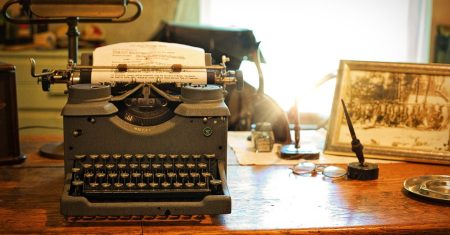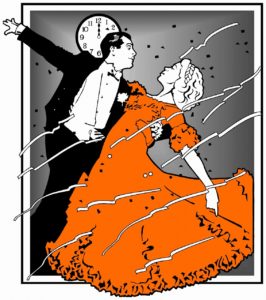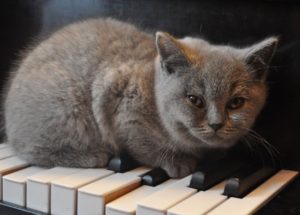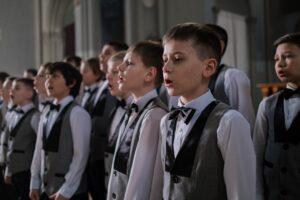Estimated reading time 7 minutes
Table of Contents
Introduction
Do you ask yourself, “What in the world is point of view anyway?” Does your audience sometimes get confused about who is singing in your songs? You may have problems with your point of view. Read more to learn about the narrator’s point of view in your songwriting.
The narrator tells the story in your song. We have three generally accepted points of view that you can use in your lyrics. Each one has its strengths and weaknesses.
We’ll define each point of view. Then, we’ll look at the different points of view by considering how much the singer and the audience fuse with the characters in each perspective. In other words, does the singer and the audience feel like characters in the song or not?
We’ll start with second person perspective, which creates a lot of character fusion. Then, we’ll finish with the third person perspective, which has no character fusion. Each point of view will have lyrics from a songwriting standard which will demonstrate the concepts.
This article uses literary terms. For definitions, see the Glossary at the end of the post.

The Personal Perspective and the Narrator’s Point of View in Your Songwriting
Second Person Perspective
The narrator’s point of view when using second person perspective goes from the singer to the audience where both play a role in the story.
In other words, the singer plays a character that sings directly to another character that the audience has fused with. This means the audience members feel like the second character in the story. Thus, this point of view creates an intimacy between the singer and the audience.
However, it can sometimes be difficult to add in imagery. Because you have to make sure that you don’t describe situations that the “singee” would already know. If you do that, it can make the dialog between the characters sound unnatural.
You can get around this by having the singer talk about feelings (“when you did [this], I felt [that]”) or remember events (“remember when we…”).
The Darktown Strutters Ball includes a good amount of imagery, but not by recalling the past. Instead, the singer anticipates the future. He eagerly tells the singee about their invite to a trendy ball, and all that they can do when they get there.

The Darktown Strutter’s Ball Lyrics
Note how the narrator’s point of view has him directly interacting with the audience. See the video below to hear how the lyrics sound with the music.
Mobile users: for best results reading the lyrics, tilt your screen 90o to the right.
I’ve got some good news, honey
An invitation to the Darktown Ball
It’s a very swell affair
All the “high-browns” will be there
I’ll wear my high silk hat and frock tail coat
You wear your Paris gown and your new silk shawl
There ain’t no doubt about it babe
We’ll be the best dressed in the hall
Chorus:
I’ll be down to get you in a taxi, honey
You better be ready about half past eight
Now dearie, don’t be late
I want to be there when the band starts playing
Remember when we get there, honey
The two-steps I’m goin’ to have ’em all
Goin’ to dance out both my shoes
When they play the “Jelly Roll Blues”
Tomorrow night, at the Darktown Strutter’s Ball
We’ll meet our high-toned neighbors
An exhibition of the “Baby Dolls”
And each one will do their best
Just to outclass the rest
And there’ll be dancers from every foreign land
The classic, buck and wing, and the wooden clog
We’ll win that fifty dollar prize
When we step out and “Walk the Dog”
(Chorus)
The Darktown Strutter’s Ball Video
The Narrator’s Point of View in Your Songwriting: The Singer Remains Part of the Action
First Person Perspective
The narrator’s point of view when using first person perspective has the singer “on-stage” as part of the story. However, unlike second person perspective, the audience doesn’t fuse with a character. Namely, the audience has no role in the action.
That means that this point of view doesn’t have the intimate quality of the second person perspective. On the other hand, writing imagery for first- and third-person perspectives will be much easier to do than with second-person perspective.
This version of Clementine has the lyrics in first person perspective. Also, it has a more serious story than you often find in more modern versions. Conversely, the video version of Clementine (below) lampoons the maudlin quality of the late 19th century songs. In addition, it uses second person perspective.
Clementine Lyrics
Watch how the narrator’s point of view has him talking about a character that does not include the audience. Yet, he himself still has a role in the story.
In the center of a valley
Dwelled a girl who looked divine
A pretty creature, a miner’s daughter
And he named her Clementine
Chorus:
Oh my darling, oh my darling
Yes, my darling, Clementine
She is lost to me forever
How I miss my Clementine
She led her ducks down to the river
And the weather looked just fine
Stubbed her foot against a sliver
Fell into the raging brine
(Chorus)
Heard her calling, calling louder
With her voice clear as a chime
But alas I was no swimmer
And I lost my Clementine
(Chorus)
Clementine Video
The Narrator’s Point of View in Your Songwriting: Keeping Your Distance
Third Person Perspective
The narrator’s point of view for third person perspective insulates both the singer and the audience from the characters in the song. The singer acts as an “offstage” narrator that describes the story. However, neither the singer nor the audience will be one of the characters.
The third person perspective allows the singer and the audience to have a little distance from the characters in the lyrics. With both first- and second-person perspectives, the singer fuses with the main character.
However, if the characters do things that make them unpleasant, third person perspective will be a better choice. Because this perspective allows some detachment from the subject. If you use first- or second-person perspectives for a nasty character, many singers will avoid recording the song. Yet, they might sing the song if it gets cast in third person perspective.
In the song The Cat Came Back, the characters try over and over again to abandon or kill the cat. However, the cat just keeps coming back. Using the third person perspective allows us to keep ourselves at arm’s length from a character the SPCA would frown upon.
The following video shows a more kid friendly version of the song. However, the third person perspective remains intact. (The musical arrangement sounds pretty cool, too. Enjoy.)

The Cat Came Back Lyrics
You will notice that the singer and audience can’t be found in these lyrics. The narrator’s point of view remains totally aloof. Thus, why we call it third person perspective, because it details the events around a third person – not the narrator or the audience.
Well, old Mister Johnson, he had troubles of his own
He had an old yellow cat who wouldn’t leave its home
He tried ev’rything he knew to keep that cat away
Even sent it to a teacher and he told that cat to stay
Chorus:
But the cat came back, couldn’t stay no longer
The cat came back, the very next day
The cat came back, thought he was a goner
But the cat came back, for it wouldn’t stay away
A man down on the corner swore to kill the cat on sight
Loaded up his rifle with nails and dynamite
He waited in the garden for the cat to come around
Though they looked and looked that man they never found
(Chorus)
Once he gave the cat away to a man in a balloon
And told that man to take it to the man up in the moon
But the balloon got busted, so everybody said
It sailed seven miles away where it crushed a flower bed
(Chorus)
The cat it was a terror and they said it would be best
To give it to an old man who traveled out West
The train went ‘round the curve and struck a broken rail
Not a blessed soul aboard the train was left to tell the tale
(Chorus)
The Cat Came Back Video
Concluding Thoughts to The Narrator’s Point of View in Your Songwriting
By now, you’ll have a good grasp of how the narrator’s point of view can affect the tone and mood of your song. Which point of view you use will really depend on the type of song you want to write.
Your next step should be to listen to a few of your favorite songs and observe how each song’s point of view affects the lyrics. Next, do the same thing for some of the hit songs on the radio. Then, write a song in each narrative perspective. Have fun writing!
© 2022 Geoffrey Keith
Join me for online or in-person lessons today!
Glossary
Singing in Tune with Vowels
Want to have better vocal tone? Want to sing in tune? Singing is all about the vowels. Vowels have a central role in singing, because the vowels impact your tone. Also, they impact how you tune when you harmonize. This happens when sound passes through the formants - the resonant folds in the vocal tract. The formants filter your voice’s harmonic overtones, which influences your harmonic intonation. Read more to learn about singing in tune with vowels. Estimated reading time 6 minutes.
Read MoreHow Do I Switch from Singing Shaped Notes to Standard Notation – Part 1
“How do I switch from singing shaped notes to standard notation?” Because they’re easy to read, shape notes will always be a good choice for struggling readers, and it makes a great introduction to solfege too. However, the limited shape note repertoire means that shape note singers may want to learn to read standard notation as well. Click to learn how to transition from shaped notes to standard notation. Estimated reading time 3 minutes.
Read MoreSinging Shape Notes Solfege Lydian Melodies
Do you want to be able to sing advanced modes? Are you confused about how the Lydian mode works? Modes are a feature of folk music around the world but are also both in jazz and 20th/21st century classical. Singing Shape Notes Solfege Lydian Melodies will help you master advanced modes. Keep reading to learn more. Estimated reading time 2 minutes.
Read MoreOvercoming Writer’s Block in Songwriting
Have you ever looked at a blank sheet of paper and couldn’t think of a single lyric idea? Try these tips for overcoming writer’s block in songwriting. Estimated reading time 4 minutes.
Read More




